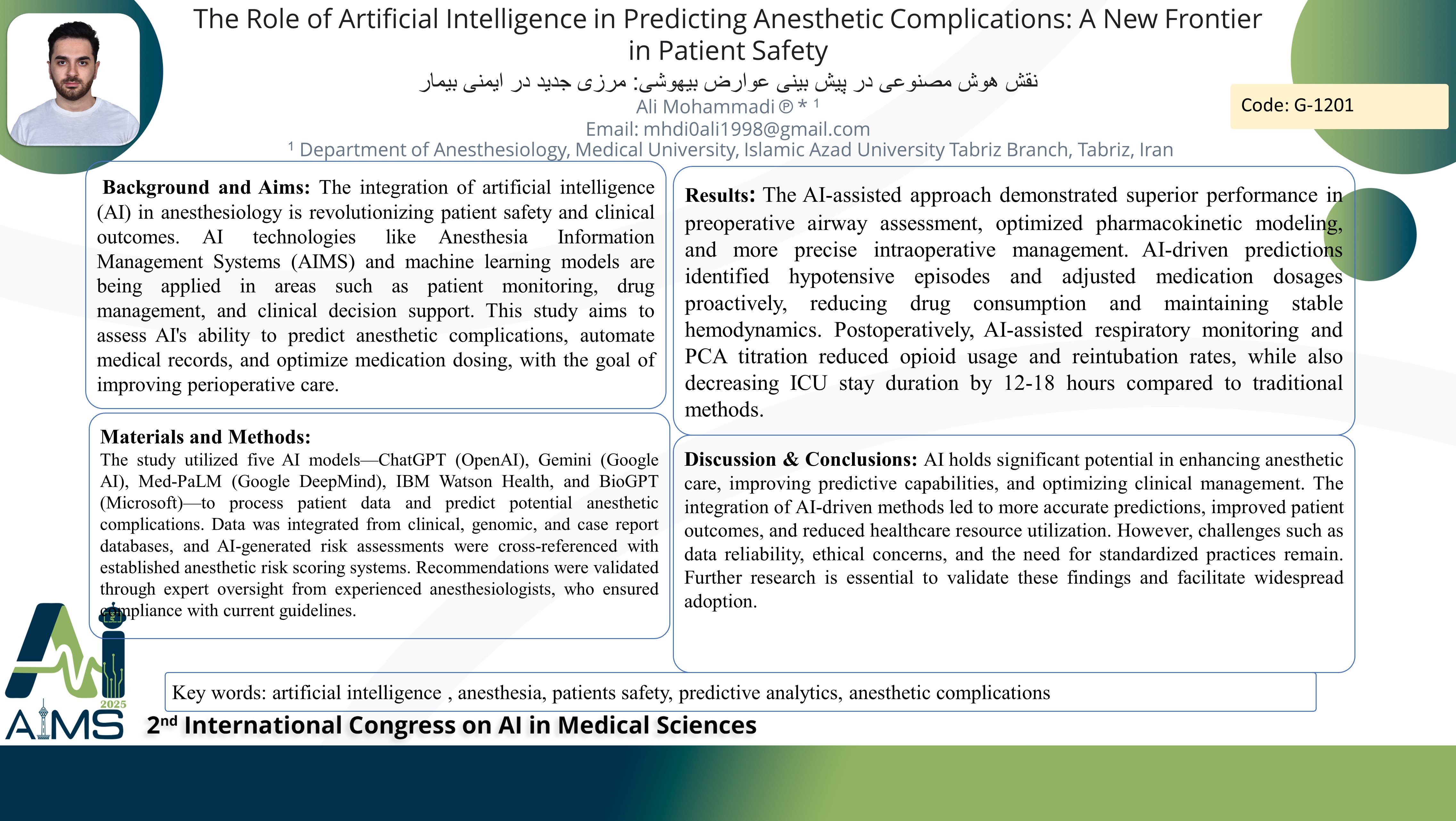نقش هوش مصنوعی در پیش بینی عوارض بیهوشی: مرزی جدید در ایمنی بیمار
کد: G-1201
نویسندگان: Ali Mohammadi * ℗
زمان بندی: زمان بندی نشده!
برچسب: سیستم های تصمیم یار بالینی
دانلود: دانلود پوستر
خلاصه مقاله:
خلاصه مقاله
Background and Aims: The integration of artificial intelligence (AI) in anesthesiology is revolutionizing patient safety and clinical outcomes. AI technologies like Anesthesia Information Management Systems (AIMS) and machine learning models are being applied in areas such as patient monitoring, drug management, and clinical decision support. This study aims to assess AI's ability to predict anesthetic complications, automate medical records, and optimize medication dosing, with the goal of improving perioperative care. Method: The study utilized five AI models—ChatGPT (OpenAI), Gemini (Google AI), Med-PaLM (Google DeepMind), IBM Watson Health, and BioGPT (Microsoft)—to process patient data and predict potential anesthetic complications. Data was integrated from clinical, genomic, and case report databases, and AI-generated risk assessments were cross-referenced with established anesthetic risk scoring systems. Recommendations were validated through expert oversight from experienced anesthesiologists, who ensured compliance with current guidelines. Results: The AI-assisted approach demonstrated superior performance in preoperative airway assessment, optimized pharmacokinetic modeling, and more precise intraoperative management. AI-driven predictions identified hypotensive episodes and adjusted medication dosages proactively, reducing drug consumption and maintaining stable hemodynamics. Postoperatively, AI-assisted respiratory monitoring and PCA titration reduced opioid usage and reintubation rates, while also decreasing ICU stay duration by 12-18 hours compared to traditional methods. Conclusion: AI holds significant potential in enhancing anesthetic care, improving predictive capabilities, and optimizing clinical management. The integration of AI-driven methods led to more accurate predictions, improved patient outcomes, and reduced healthcare resource utilization. However, challenges such as data reliability, ethical concerns, and the need for standardized practices remain. Further research is essential to validate these findings and facilitate widespread adoption.
کلمات کلیدی
Artificial Intelligence , Anesthesia, Patients safety
